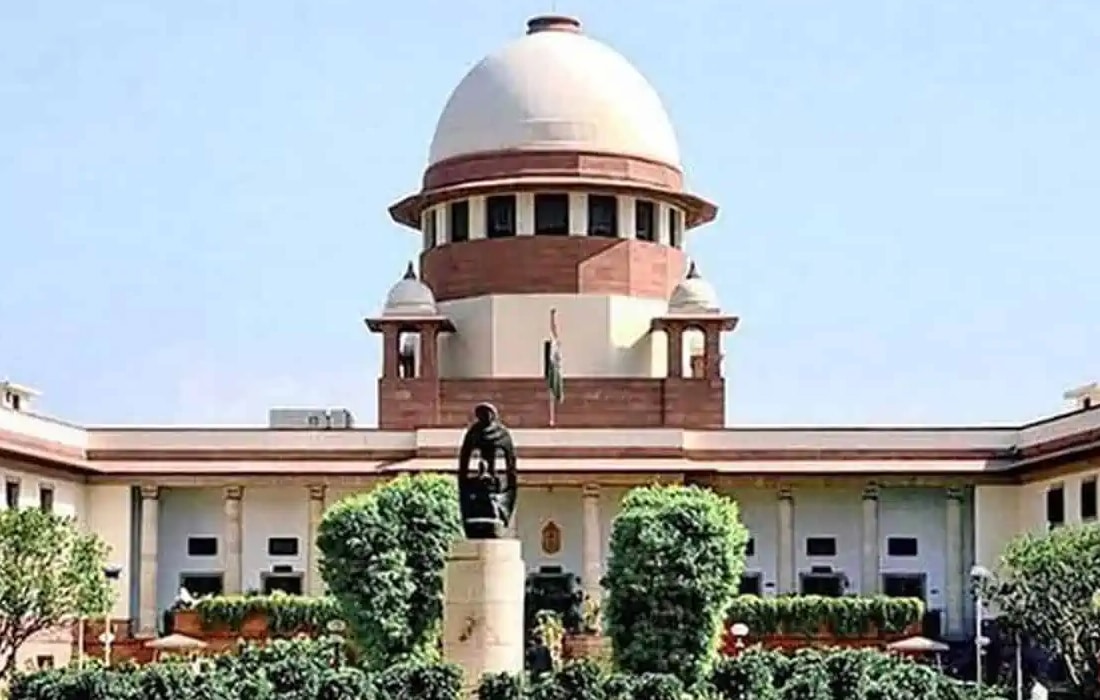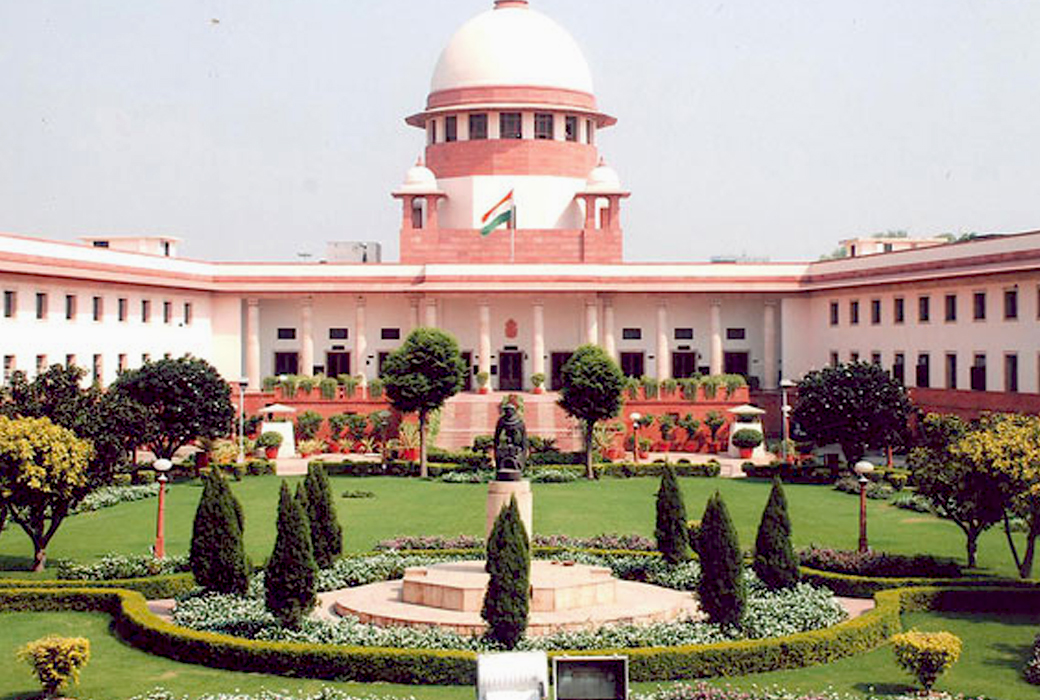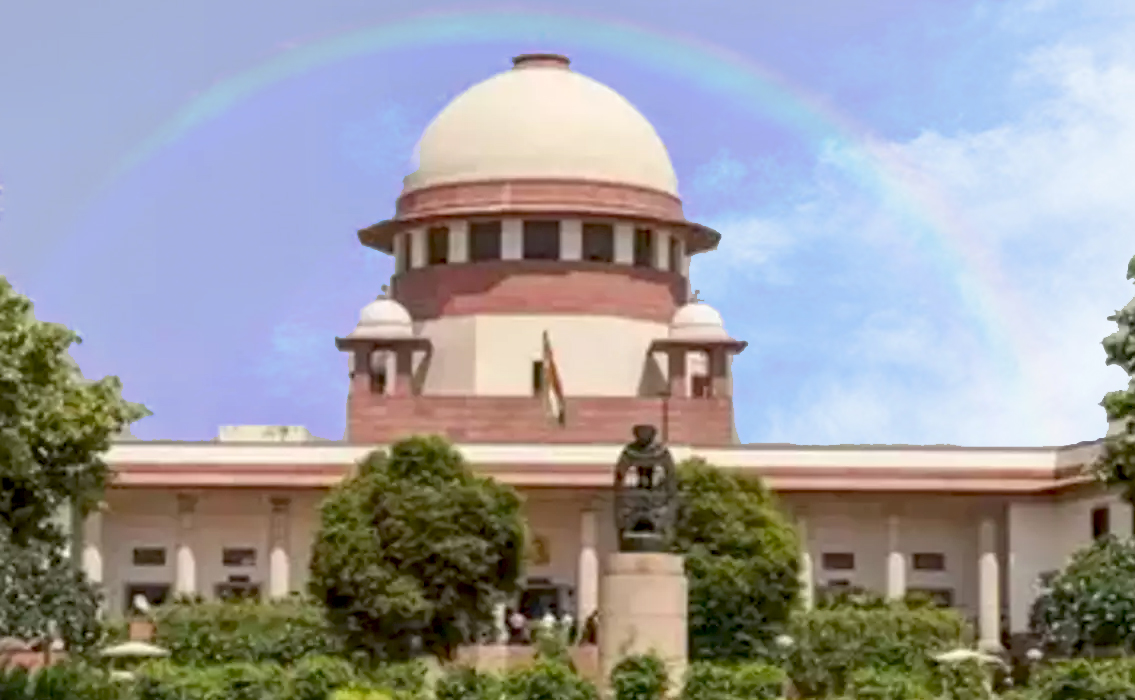>> Judge Roy Moore Puts a Stop to Same-Sex Marriage in Alabama
[spacer]
Le président de la Cour suprême d’Alabama a ordonné mercredi aux juges des affaires familiales de cet État du sud des États-Unis de ne pas émettre de licence pour des mariages entre personnes de même sexe.
Le juge Roy Moore, connu pour ses coups d’éclat contre l’autorité fédérale, marque ainsi son opposition au feu vert donné par la Cour suprême des États-Unis en juin dernier.
« Jusqu’à une nouvelle décision de la Cour suprême d’Alabama, les ordonnances existantes de la Cour suprême d’Alabama – selon lesquelles les juges des affaires familiales ont le devoir de ne pas émettre de licence de mariage contraire à l’amendement sur les liens sacrés du mariage en Alabama et à la loi d’Alabama sur la protection du mariage – restent pleinement valides et en vigueur », a décidé Roy Moore, président de la Cour suprême de l’Alabama dans une ordonnance de quatre pages.
Or la Cour suprême des États-Unis a légalisé le 26 juin 2015 le mariage homosexuel dans la totalité du pays, une décision historique. La haute Cour a jugé que les 14 États américains (sur 50) qui refusaient encore d’unir deux personnes de même sexe devaient non seulement les marier mais, en plus, reconnaître leur mariage lorsqu’il a été célébré ailleurs.
Mais pour le juge Moore, cette décision fédérale a entraîné « confusion et incertitude » parmi les juges des affaires familiales d’Alabama, certains s’y soumettant, d’autres ne délivrant des licences qu’aux couples hétérosexuels, et d’autres enfin arrêtant purement et simplement d’émettre des licences de mariage, explique-t-il dans son ordonnance.
« Cette disparité affecte l’administration de la justice dans cet État », relève-t-il.
Il s’appuie sur un jugement de la Cour suprême d’Alabama du 3 mars 2015, faisant référence à un amendement de 1901 et à une loi de 1975, qui stipulent que « le mariage est par essence une relation unique entre un homme et une femme ».
Cette décision affirmait également que « rien dans la Constitution des États-Unis n’altère ou ne surpasse ce devoir ».
Le juge Moore cite également plusieurs jugements intervenus depuis fin juin, notamment de la Cour d’appel des États-Unis, ayant statué que la décision historique Obergefell v. Hodges n’invalidait que les lois sur le mariage des États concernés par cet arrêt (Michigan, Kentucky, Ohio, Tennessee).
L’Alabama avait légalisé le mariage gai en février 2015 mais la plupart des juges aux affaires familiales avaient refusé de s’y conformer. Sous l’instruction en particulier du « Chief Justice » de l’État, Roy Moore.
Ce chrétien ultraconservateur avait notamment été démis de ses fonctions de président de la Cour suprême d’Alabama en novembre 2003 pour avoir refusé de se plier à un jugement lui ordonnant de déplacer une stèle monumentale des Dix commandements placée devant l’entrée de l’institution judiciaire.
[spacer]
>> Alabama Chief Justice Roy Moore stood firm Thursday in his position that the state’s probate judges should not issue marriage licenses to gay couples, a stance he insisted is not in defiance of the U.S. Supreme Court ruling last summer that effectively legalized same-sex marriage nationwide.
Moore’s remarks in an interview with The Associated Press came after two U.S. prosecutors issued a statement saying the probate judges need to obey the nation’s highest court, not the state’s highest justice.
In his interview with the AP, Moore reiterated remarks first laid out in his order: that the Alabama Supreme Court has not lifted a March 3 order against issuing licenses to gay couples.
He said it’s up to the state court to decide what to do with that order following the U.S. Supreme Court’s decision.
“Probate judges should be following the orders of the Alabama Supreme Court, the highest state authority. If that state authority does find that (the U.S. Supreme Court decision) does have an effect on their order, they will remove the injunction. If they do not, I guess the injunction will continue,” Moore said.
Moore said he sent his order because probate judges were confused about what to do.
Two federal prosecutors in Alabama, however, said Wednesday night that there should be no confusion, because the U.S. Supreme Court ruling trumps whatever the state court has to say on gay marriage.
U.S. Attorneys Joyce White Vance of the Northern District of Alabama and Kenyen Brown of the Southern District of Alabama issued a statement saying they had “grave concerns” about Moore’s administrative order.
County Probate Judge Steven Reed told CBS affiliate WAKA that despite what Moore says, he is not confused about his job.
“The Supreme Court has ruled, I don’t understand where he’s coming from whatsoever, I don’t understand what the motive is, it makes no sense whatsoever,” Reed says. “And this office is not going to abide by that and we’re just going to ignore it and I guess just assume that this is Old Roy being Roy.”
WAKA political analyst Steve Flowers compared Moore’s statement to another political figure’s actions on a similar hot button topic.
“At the same time, in the 1960’s, most Alabamians were not in compliance with integration,” Flowers says. “But it was a federal law. And I call what Roy Moore is doing similar to what George Wallace did in the 1960’s: he’s standing at the schoolhouse door and demagoguing this issue.”
Whether or not probate judges follow orders is yet to be seen, but Flowers does not think Moore’s statement will change anything.
“The Supreme Court has clearly stated that same sex marriage is the law of the land,” Flowers says. “Now what is some Alabama Supreme Court judge, why’s he more powerful than the United States Supreme Court?”
Some probate judges who had stopped issuing all marriage licenses in response to Moore’s order Wednesday said Thursday they had resumed the service after consulting with attorneys.
“We’re back to our normal issuance just like we had been before yesterday,” said Lawrence County Probate Judge Michael Praytor, adding that license operations had only been suspended for about three hours after the order was issued Wednesday afternoon.
Praytor said the Association of County Commissions of Alabama, which provides his office’s insurance, emailed him to give guidance on how to resolve the issue. He said the ACCA cited opinions from federal officials and a representative of the University of Alabama’s school of law in the guidance his office was given.
“It was basically the same thing that they had before when the (U.S. Supreme Court) ruling came down,” Praytor said.
Officials in Madison County said they also had resumed issuing licenses. Mobile County said licensing operations were still suspended.
Moore is a historically controversial figure in Alabama who was once removed from judicial office for refusing to follow a federal judge’s order to remove a Ten Commandment’s monument from the state judicial building. He also has been an outspoken critic of gay marriage, once predicting in a campaign speech that it would be the ultimate destruction of the country. He declined to say during Thursday’s interview, however, what the Alabama Supreme Court should decide when reviewing the U.S. court’s ruling.
Civil rights organizations and gay-marriage advocates have blasted Moore’s latest order, saying that it is sure to be challenged and defeated in court.
In an interview Wednesday, University of Alabama School of Law Professor Ronald Krotoszynski said Moore’s suggestion to probate judges to refuse to issue marriage licenses “constitutes an exercise in futility.”
“At best, it sows chaos and confusion,” he said. “At worst, it forces couples to bring federal court litigation in order to exercise a clearly established federal constitutional right.”
Southern Poverty Law Center President Richard Cohen did not mince words when asked his opinion Thursday.
“Chief Justice Roy Moore is once again demonstrating that he is unfit to hold office,” Cohen said.


















